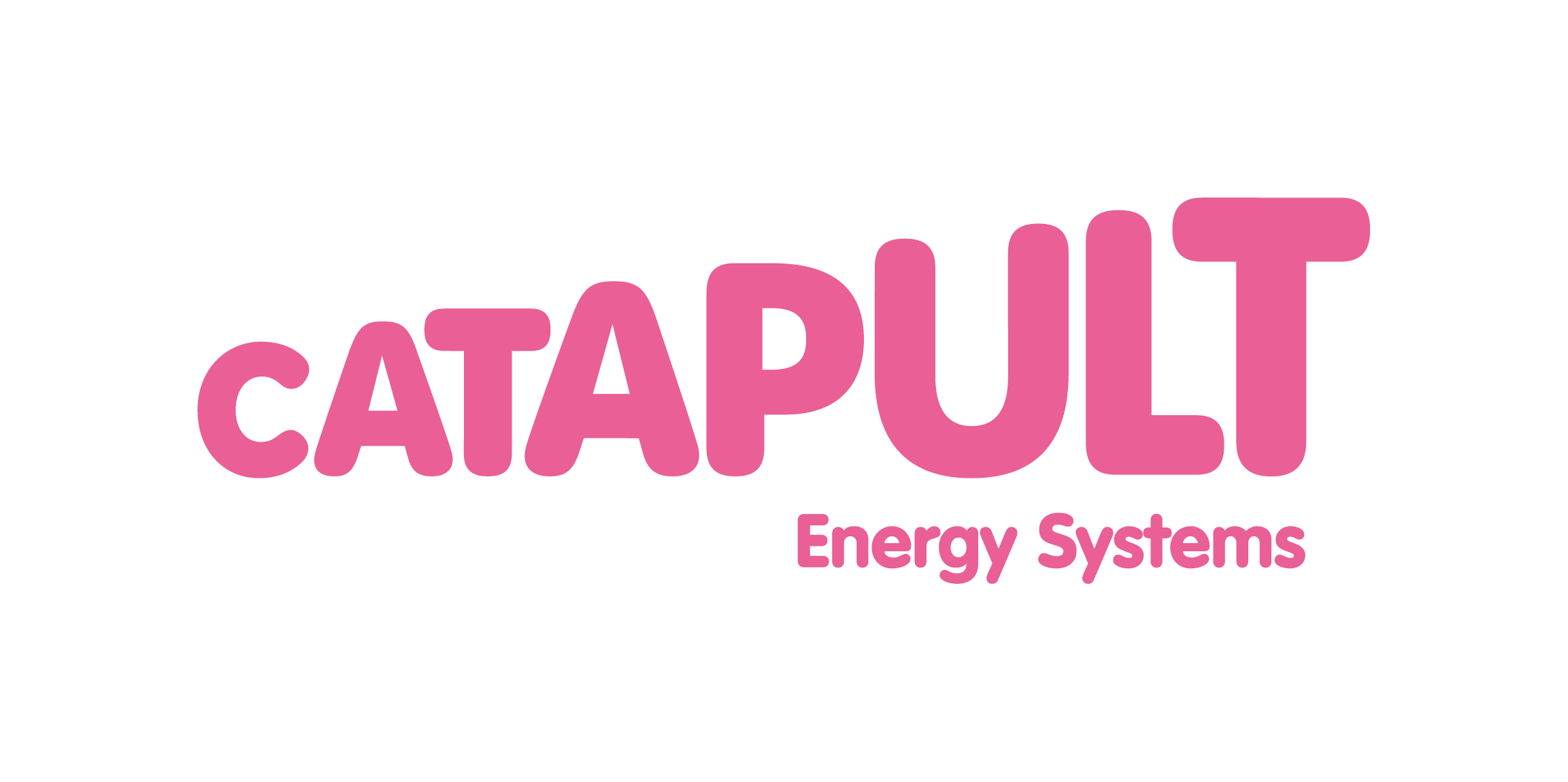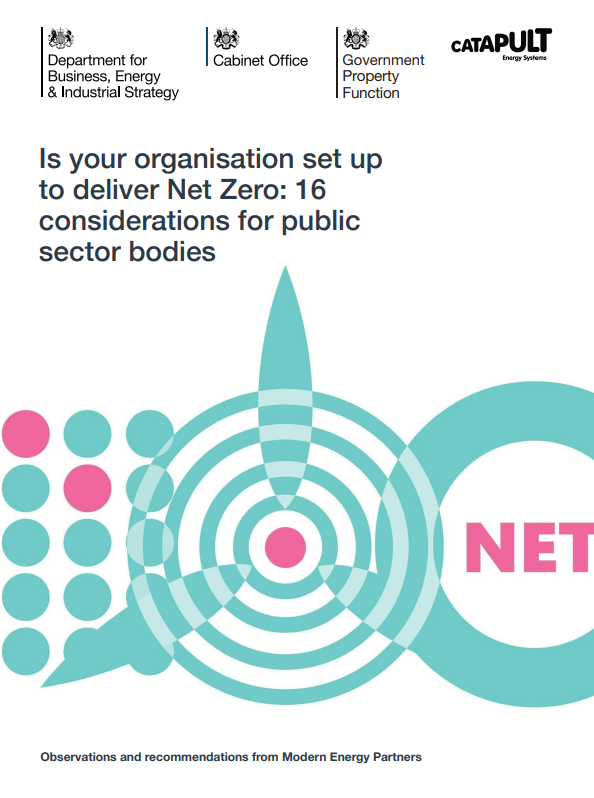This report provides a summary of the work undertaken researching the attributes that an organisation requires in order to be able to decarbonise.
Context
This report provides a summary of the work undertaken between September 2021 and March 2022 researching the attributes that an organisation requires in order to be able to decarbonise.
This research project explicitly sought to build on the work already carried out by Modern Energy Partners (MEP), and capture further learning including by working with four public sector organisations with significant emissions (Ministry of Defence (MoD), Ministry of Justice (MoJ), National Health Service (NHS), and Department for Education (DfE)). A massive thank you must go to them for their participation.
Target Operating Model Research
A Target Operating Model was defined as:
A way of breaking down an organisational system into components, showing how it works, helping understand the whole.
Furthermore, it was understood that breaking it down into components or attributes can help leaders identify problems that are causing under performance and help those making changes to transform an operation.
Using these expanded themes, a review of departmental Net Zero activity was carried out through review of current documentation and interviews with stakeholders from different parts and aspects of the sector.
Findings
Through this research, 16 overarching conclusions were captured and are listed in the table below. Further detail of the research approach and findings are provided within this summary report, with more detailed feedback provided directly to the departments.
- The Net Zero Target Operating Model attributes are likely to be relevant across all public sector organisations.
- Whilst the attributes are relevant to all organisations, they will look different for different organisations.
- Typically, stronger leadership at a more senior level promotes greater commitment across the organisation to support decarbonisation delivery.
- Developing a high-level strategy which can be communicated across the organisation sets a clear statement of intent, however, a strategy should be backed up with detailed scaled delivery plans.
- Linking decarbonisation to organisational values makes explicit its importance to departmental operations.
- Incorporating carbon evaluation metrics into operational process, including business case development and approval, and other decision-making, will unlock and support scaled delivery of decarbonisation.
- Enhancing existing information reporting systems with energy, cost, and carbon-related data will empower stakeholders through better and more timely knowledge.
- Capacity needs to be built for scale and in the right places in the organisation, through mapping of the needs and requirements in each area of the organisation. Skills needs will vary dependent on the type of activity that each actor is going to fulfil.
- If capacity is not available within the organisation, then it should be sought from the supply chain, though care should be taken to ensure that consistent and high-quality support is obtained. Capacity will be needed to support delivery, from installation to on-site security escorting contractors.
- Improving general carbon literacy throughout the public sector will support better buy-in, wider adoption, and scaled decarbonisation.
- Having a clearly defined Net Zero organisational structure, which complements the overall organisational structure, will provide clarity to those across the organisation on roles and responsibilities. Attributing clear targets and goals to each group will support delivery.
- A high-level Net Zero strategy and its underlying delivery plans must consider how all the Net Zero Target Operating Model attributes will be fulfilled, to support decarbonisation at scale in line with relevant targets. This may mean a step change in current deployment plans.
- Trials and tests of technologies, process and decision-making, and different commercial routes must continue, but be more joined up. Knowledge from trials should be captured and shared more widely to help demonstrate scaled delivery models.
- Recording standard information for sharing amongst a community either within a sector or more widely would help others understand how they can deploy at scale. Departments and other public sector organisations need a committed multi-year budget to be able to start to deliver at scale.
- Clear direction on expectations for departments and other public sector organisations would support the development of scaled decarbonisation plans.
- More guidance and collaboration across Government, to support shared learning and speed of uptake efficiently.


